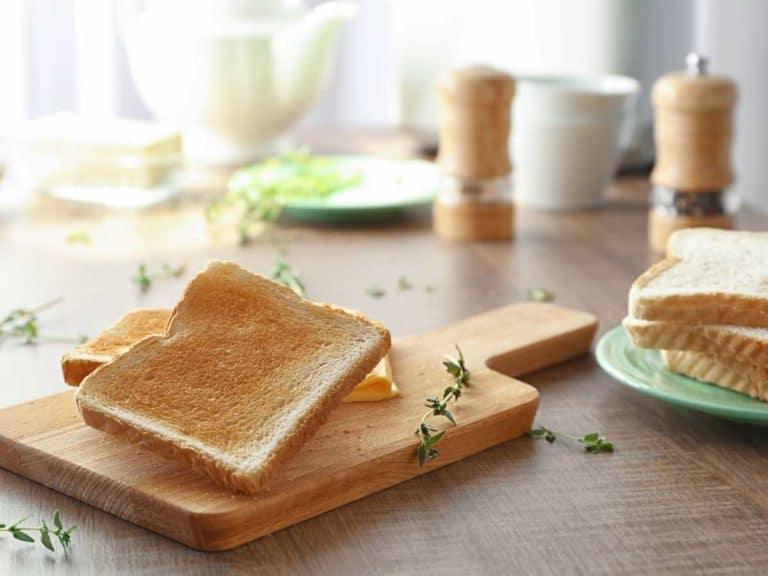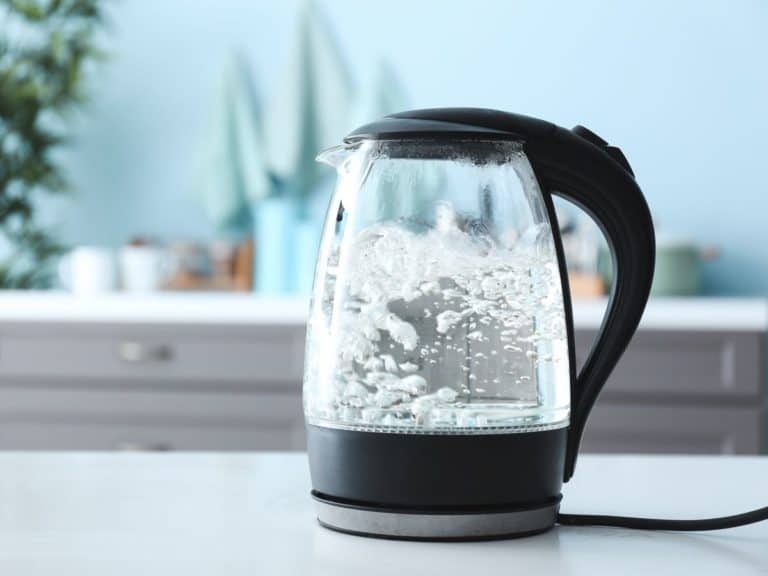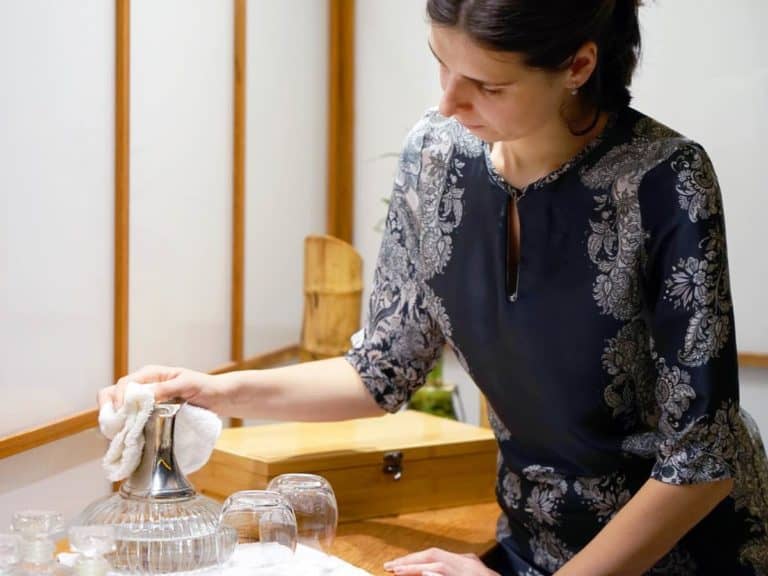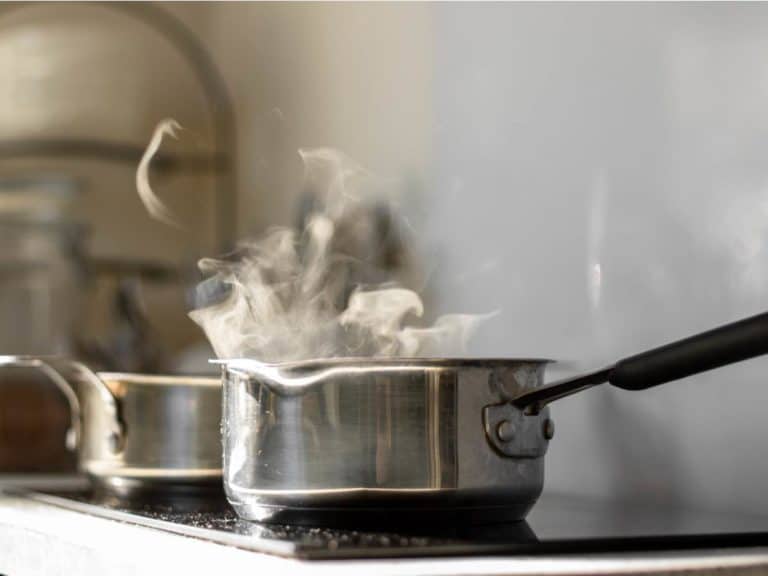Here’s What Makes Astronauts Crave Shrimp
Despite being 240 miles above the surface of the Earth, astronauts can still enjoy a wide variety of foods every mealtime. As a matter of fact, just about anything that can be dehydrated and then rehydrated can be consumed in outer space. And nothing can make the mouths of astronauts water more than shrimp.
Shrimp per se is not what astronauts like — its shrimp cocktail with a hot and spicy sauce, such as one containing horseradish, that they often crave in outer space. A sauce with a punch allows astronauts to enjoy shrimp much better because it gets rid of their stuffy noses, which can dull the flavor of food.
No, it’s not because of the common cold why the noses of astronauts are congested. The lack of gravity causes water in their bodies to accumulate wherever they like, including the nasal passages and sinuses.
Whether you like eating shrimp or reading about astronomy or both, keep reading.
In this post, I will discuss why everybody’s saying that astronauts crave shrimp. You will learn that there are a bunch of things about shrimp, especially when prepared in a certain way, that makes it irresistible outside of the planet.
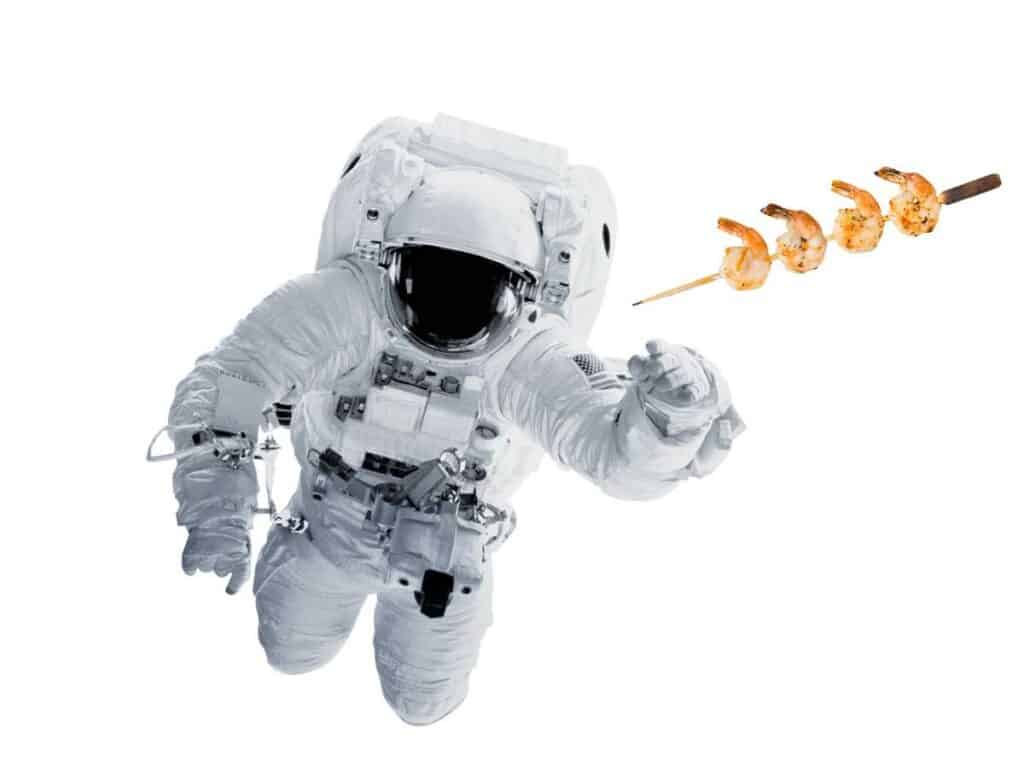
Much of the Taste Comes From the Sense of Smell
Refrain from assuming that the tongue, because it packs taste buds amounting to anywhere from 2,000 to 4,000, is the only one responsible for taste perception. Scientists say that approximately 75% to 95% of what is perceived as taste actually comes from the sense of smell, which allows people to experience complex flavors.
It’s no secret that food tastes bland when we have a cold. It’s for the fact that the viral infection keeps us from smelling properly, what with the excess mucus in the nose and the swollen air passages.
There’s no need for astronauts to have a cold just to be stuffy and unable to taste food properly.
The lack of gravity is more than enough to rob food of its flavor just like when they are suffering from a bout of the common cold. With the water in their bodies pooling everywhere, including the nasal passages, it can be hard for them to smell and, ultimately, taste, whatever food they put in their mouths.
Needless to say, being on board a space shuttle can make them lose their appetite. Making matters worse is that space motion sickness, which is said to affect nearly 4 out of 5 astronauts, can also cause loss of appetite.
Other symptoms are vomiting and dizziness, which can make eating less of a priority.
The problem is that humans in space need more calories. That’s because the absence of gravity can cause the body’s vital organs to work harder, such as the heart. As a matter of fact, in outer space, the heart expands slightly and works a little differently just for it to be able to circulate oxygenated blood throughout the body.
Since the body is working extra hard, it needs more calories. And this is why astronauts are recommended to consume anywhere from 2,700 to 3,700 calories per day.
Having no appetite because food tends to taste bland can make that feat difficult on the daily.
Read Also: What You Should Know Before Eating Shrimp Shells
Hot and Spicy Foods Open Up the Air Passages and Sinuses
There is one proven effective way to deal with stuffiness of the nose and the rest of the upper air passages: eating something hot and spicy. The reason why it works is that hot and spicy foods irritate the mucus lining, thus causing excess mucus to exit either out of the nose or down the back of the throat.
With clearer airways, you can smell so much better. And with a much better sense of smell, you can enjoy the full flavor profile of whatever food is served in front of you.
In addition, hot and spicy foods increase saliva gastric juice production, which stimulates the appetite.
And it’s exactly for this reason why it’s not uncommon for astronauts floating above our heads to crave shrimp cocktail with a sauce packing a zing — horseradish in the sauce is very good at ridding the nasal passages and the sinuses of excess mucus, thus allowing air with odor molecules from food to enter the airways freely.
Because shrimp cocktail allows astronauts to regain their sense of smell, thanks to its accompanying sauce, they can perceive the taste of food as they would back on Earth. Well, unless they have a cold here on the planet.
While shrimp is loved for its ocean smell, horseradish makes waves with its pungent aroma. And it’s exactly due to this why shrimp cocktail with a hot and spicy sauce is a favorite in outer space — the unmistakable smell of horseradish gives the noses of astronauts a break from the often unpleasant smell of the air on the space station.
The smell of sweat and the exhaust of various equipment in operation often accumulate in re-circulated air out in space. Prolonged exposure to them, as with other smells, leaves astronauts unable to smell them after some time.
In addition, it is said to suppress their ability to pick up new smells.
Since horseradish has a rather overpowering odor, it can revitalize the olfactory system, which consists of nerves and other bodily components that serve the sense of smell.
Shrimp Responds to Dehydration Better Than Most
Some seafood can be dehydrated better than others. One of them is shrimp. Dehydrated shrimp rehydrates easily without losing much of its original taste and texture. It’s because of this why shrimp is one of the favorite foods of astronauts. When rehydrated, dehydrated shrimp retains its mildly sweet and salty flavor and chewiness, too.
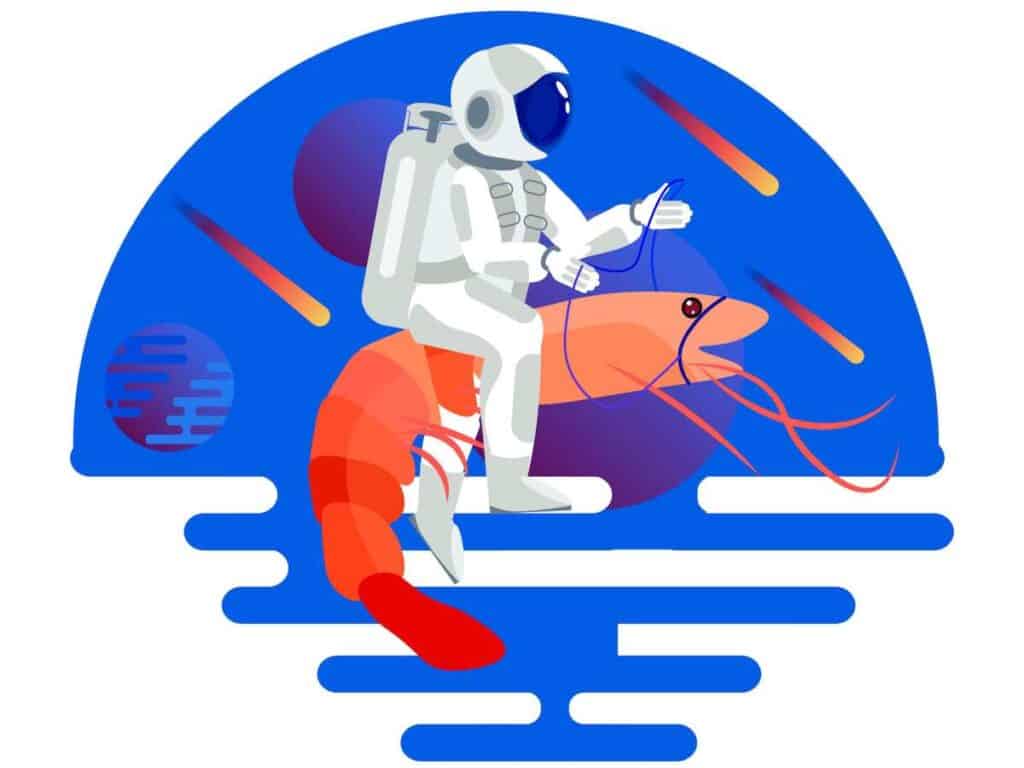
Dehydrated foods make up the majority of the menu of astronauts in outer space.
That’s because dehydrated foods are lightweight, resistant to spoilage and easy to prepare — water, which is used for rehydrating foods, is available abundantly as it’s a byproduct of the space shuttle’s fuel cells.
Fortunately for astronauts, almost all foods can be dehydrated and thus taken and enjoyed outside the Earth’s atmosphere. But not all foods that can be dehydrated rehydrate nicely. Some end up mushy, while others end up rubbery. And then there’s also the fact some dehydrated foods do not regain their original flavors.
Shrimp, however, is an exception — dehydrated shrimp retains not only its flavor but also its texture.
But there’s no need for you to be an astronaut to enjoy dehydrated shrimp. To rehydrate shrimp at home, all you have to do is place it in a bowl and cover it with double the amount of water. Soak for 30 to 60 minutes.
Besides shrimp, some other seafood that respond to dehydration quite well include lobster, crab, squid mussels and tuna. As a matter of fact, even imitation crab can be dehydrated, too, which makes for an interesting seafood snack, sushi topping or ingredient when cooking stews or making salads.
Just Before You Enjoy Shrimp in Space
Shrimp is one of the most enjoyable foods out there in outer space. This is particularly true if it’s served with a hot and spicy dipping sauce. And this is why astronauts often crave shrimp cocktail, which is very easy to prepare, with a horseradish sauce that opens up the airways and makes the seafood treat even more enjoyable.
But there’s no need for you to be orbiting the Earth to enjoy shrimp cocktail!
Related Questions
Can you store leftover shrimp cocktail in the fridge?
Leftover shrimp can be placed in an airtight container or wrapped in aluminum foil or saran wrap and stored in the refrigerator, where it will last anywhere from 3 to 4 days. It’s important to note that leftover shrimp cocktail should not be left at room temperature for more than 2 hours.
How long does shrimp last in the freezer?
Shrimp can last up to a year in the freezer. It’s highly recommended by culinary experts, however, to consume shrimp within 3 to 6 months for optimum texture and flavor. To extend the shelf life of shrimp in the freezer, it’s a good idea to freeze them with the heads removed but with the shells still intact.
